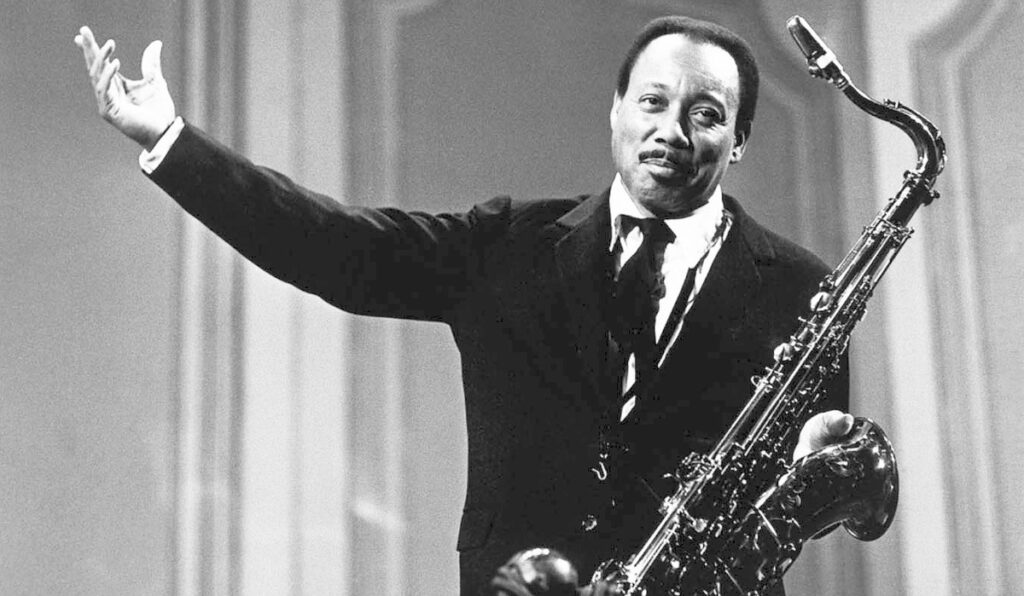
I’ve loved Eli “Lucky” Thompson’s mellifluous tenor and soprano saxophone playing since I first heard it on Lucky Strikes about 45 years ago. His name resonates too, even though it’s a misnomer. It was skill, not luck, that brought Lucky Thompson renown in the mid-1940s for performances like “Cherokee,” “Just One More Chance,” and “Irresistible You,” and for his extensive sideman work with Dinah Washington, Charlie Parker, Charles Mingus, and many lesser known figures around Los Angeles. Before his 25th birthday, he’d appeared on over 100 recordings.

In the fifties, his tenor graced Miles Davis’ groundbreaking hard bop session, Walkin’, as well as dates with Thelonious Monk, Oscar Pettiford, Jo Jones and Jack Teagarden. In a conversation between drummers Philly Joe Jones and Art Taylor in Notes and Tones, Jones said there were times when he preferred laying out so he “could listen to some of that beauty: Charlie Parker, Lester Young, Lucky Thompson, all those beautiful saxophonists.” Thompson and Milt Jackson first worked together with Parker and Dizzy Gillespie in 1945, and later sat in with Bird at the Royal Roost in 1949. (LT played on Bird’s first Dial session in 1946, the date renowned for “A Night in Tunisia.”) In the mid-1950s, they recorded for Savoy and Atlantic. The Savoy album, The Jazz Skyline, is another that’s never been far from my turntable. Thompson recorded “Lover” at least twice in the wake of Peggy Lee’s 1953 revival of the Rodgers and Hart waltz; first with Teagarden in ’54, and here as the opening title on The Jazz Skyline.
In 1956, Thompson played and recorded in France and found it to his liking; he returned the following year and remained until 1962. LT recorded several sessions for Disque Vogue during his years in Paris, and often teamed with the brilliant Algerian-born pianist Martial Solal. I wrote about Thompson and one of his tenor models, Don Byas, here two years ago, and about a nice YouTube clip of Lucky playing “Tenderly” here. More recently, I found this fine clip of LT at the Club St. Germain in Paris. With bassist Pierre Michelot and drummer Kenny Clarke, he hurtles through the changes of a piece incorrectly announced as “You Move, You Lose.” It’s actually a Thompson tune titled, “Why Weep.”
In between Thompson’s residencies in France and Switzerland in the late 1960s, he returned to New York and made three outstanding sessions for Prestige: Lucky Plays Jerome Kern and No More; Lucky Strikes; and Happy Days Are Here Again. He taught at Dartmouth College in the early ‘70s, but by 1974 he began withdrawing from the music scene and from society at large.
Perhaps it was his youthful command of sophisticated musical materials that earned Eli “Lucky” Thompson his nickname, but as his career unfolded luck seemed increasingly hard to command. Beauty and brilliance notwithstanding, Thompson enjoyed little commercial success, and he became wary of the music business. Upon his death in 2005, Ben Ratliff wrote in The New York Times, “Fiercely intelligent, Mr. Thompson was outspoken in his feelings about what he considered the unfair control of the jazz business by record companies, music publishers and booking agents.”
When I met Milt Jackson at a Modern Jazz Quartet concert at UMass in 1985, I asked him about the man who he’d made such sublime music with 30 years earlier. Bags pointed me toward his MJQ colleague John Lewis, who said he’d recently encountered Thompson in Seattle and found him to be despondent and no longer interested in playing music. By the time of his death, The Times reported that the 81-year-old had spent the preceding decades, “mostly living in the woods or in shelter offered by friends. He did not own a saxophone. He walked long distances, and was reported to have been in excellent, muscular shape.” Various sources mentioned Alzheimer’s.
In 2009, Uptown Records brought out of pair of dates on Lucky Thompson, New York City, 1964-65, the first a Little Theater concert featuring LT’s compositions and arrangements for an octet; the latter an aircheck from the Half Note with a version of Tadd Dameron’s “Lady Bird” that makes for essential listening. In 2016, I found this footage of Lucky playing “I’ll Remember April” with Solal, Michelot, and Clarke. Eight years later, it’s earned a thumbs up from only 217 viewers. Lucky warrants much more.